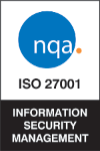As part of our commitment to shaping the future of reward and organisational strategy, the Innecto Advisory Board recently held its first of many meetings. We brought together senior HR and Reward leaders from across sectors to explore how AI is reshaping the workforce, and what that means for the policies, practices, and frameworks HR teams rely on.
What emerged was a rich, nuanced conversation. AI is no longer just a tool for automation; it’s a catalyst for rethinking roles, skills, and organisational design. But with that potential comes complexity, and a clear need for intentional, ethical, and human-centric implementation.
Augmentation Over Automation
A recurring theme was the shift from automation to augmentation. AI should empower people, not replace them. Whether it's intelligent Agents operating across platforms or tools embedded in payroll and shared services, the goal is to unlock strategic capacity and deepen insight, not simply cut costs.
Yet, adoption is not commonplace. Some organisations are experimenting widely, while others remain cautious. Junior employees, in particular, face risks of disenfranchisement as entry-level roles evolve or disappear. Equally, the real opportunity may lie in enabling senior, higher-cost talent to deliver deeper value through AI support. The importance of AI literacy, critical thinking, and maintaining ‘human-in-the-loop’ oversight to ensure technology enhances rather than erodes capability was felt strongly.
Organisational Strategy in Flux
AI is prompting a philosophical shift in how work is organised. Roles are being reframed, and talent strategies are adapting to new expectations. Some organisations are embedding AI into strategic pillars, while others are still exploring its potential informally. What’s clear is that governance, tooling, and leadership models must evolve in tandem, and organisations still have choices in how they shape this journey.
Financial pressures and rising salary expectations add further complexity too, and leaders must bring people along the journey, ensuring that transformation is inclusive, transparent, and aligned with long-term value creation.
Data, Design and Trust
Job architecture and data integrity were highlighted as foundational. Without clear, consistent job descriptions and reliable benchmarks, AI risks amplifying confusion rather than clarity. Emerging tools, including AI-powered JD writers and data scraping methods, offer promise, but must be grounded in context and human judgment.
Human-Centric Transformation
Perhaps most importantly, the conversation returned to empathy, inclusion, and leadership. AI must support people, not alienate them. From managing and coaching to organisational design, the human experience must remain central. Education is key to this, and organisations will also need to ensure that fairness in reward keeps pace with these changes. A key part of this is helping employees distinguish between human- and AI-generated outputs, to build trust and confidence. Transformation is not just technical; it’s cultural and emotional.
Final Thought
AI offers extraordinary potential, but only if we approach it with curiosity, caution, and care. The Advisory Board’s first meeting reminded us that the future of work is not just about technology, it’s about people. As HR and Reward professionals, our role is to ensure innovation strengthens human connection, not replaces it.
In our next and future Boards, we’ll explore the human element in greater depth, delving specifically into how AI will impact job evaluation, competency frameworks, pay progression, and pay benchmarking. These are critical areas where clarity, fairness, and strategic alignment, balanced with talent management, will be more important than ever.
The first Innecto Advisory Board session took place on 11th September 2025.












